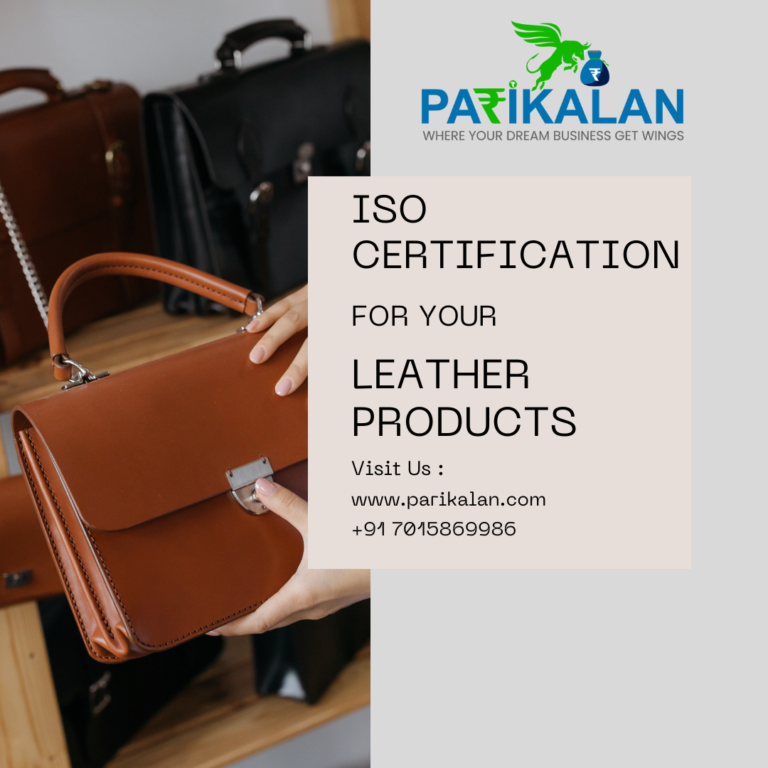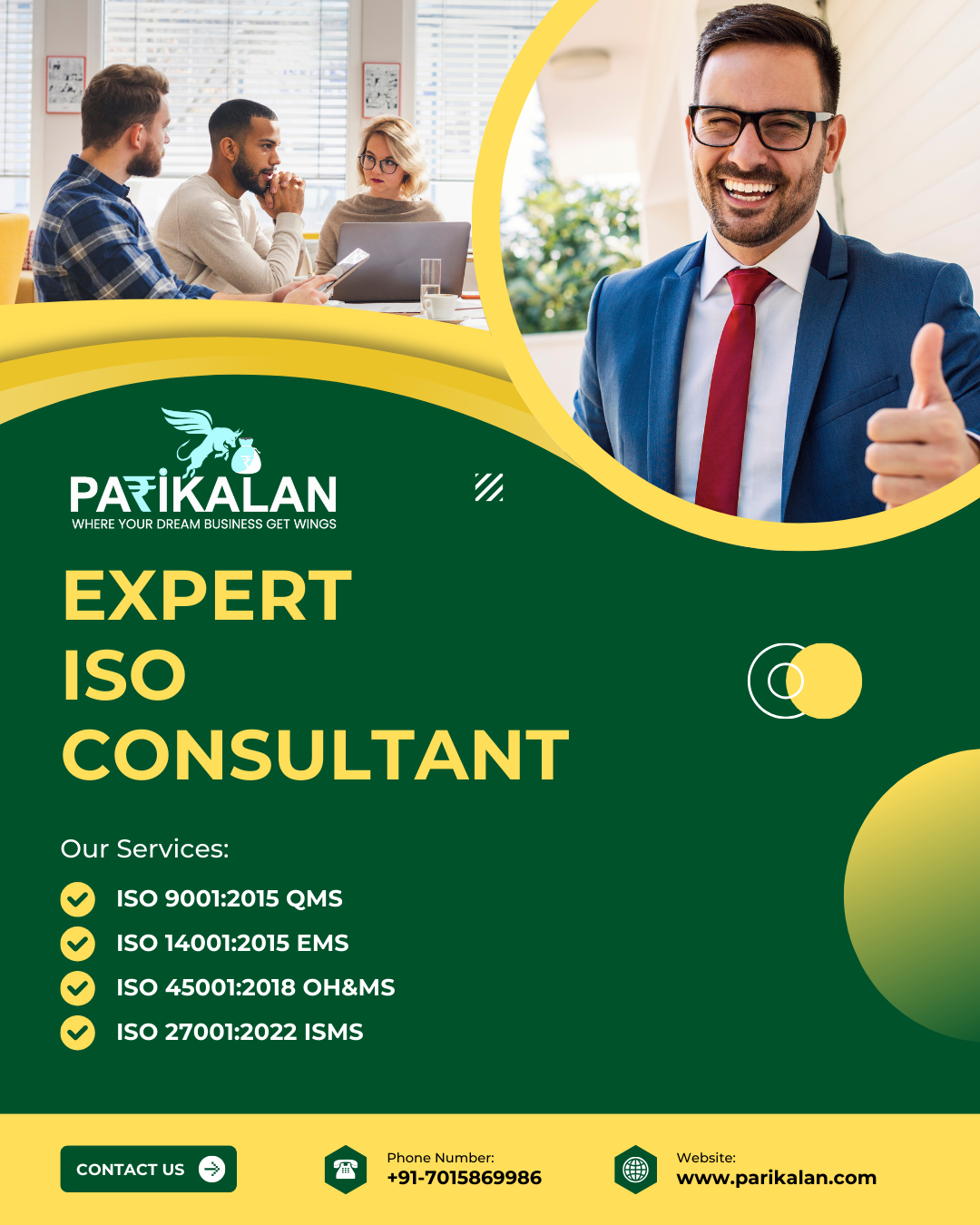ISO Certification: Ensuring Safety and Sales Growth in Leather
The leather industry, one of the most established and globally significant sectors, produces a wide range of products, from footwear and fashion accessories to furniture and automotive interiors. Countries such as India, Italy, and Brazil are significant contributors to the leather industry, known for their craftsmanship and expertise. However, the sector faces several challenges, including environmental impact, product quality, and ensuring worker safety. The intricate processes involved in leather production—tanning, dyeing, and finishing—require adherence to strict standards to ensure sustainability, quality, and workplace safety.
ISO certification offers leather manufacturers a structured approach to addressing these challenges. Beyond operational improvements, ISO certification can significantly boost sales by improving credibility and market access. Certified companies can differentiate themselves by demonstrating a commitment to quality, sustainability, and safety, which is becoming increasingly important in the global market.
Get Business Development Kit
The Importance of ISO Certification in the Leather Industry
Leather manufacturing involves several complex processes that can affect product quality, the environment and worker safety. Here’s how ISO certification helps leather companies:
- Boosting Product Quality : ISO certification ensures that leather manufacturers maintain consistent product quality.
- Environmental Responsibility: Leather production is resource-intensive, often involving water, chemicals, and energy that can have negative environmental impacts. ISO ecological standards, such as ISO 14001, guide companies in adopting sustainable practices & reducing waste.
- Ensuring Worker Safety: Leather manufacturing can pose risks to workers, such as exposure to chemicals and hazardous machinery. ISO 45001, the Occupational Health and Safety standard, helps companies create safer work environments by identifying and addressing workplace hazards.
- Increasing Sales and Market Access: Many global brands and suppliers prefer ISO-certified partners, giving certified companies better access to new markets.
- Continuous Improvement: ISO standards promote ongoing improvement by encouraging regular audits and reviews.


Key ISO Standards for the Leather Industry
1. ISO 9001:2015 – Quality Management System (QMS):
– Improves production efficiency by reducing defects and ensuring consistency.
– Enhances global competitiveness by meeting international buyer requirements.
– Reduces operational costs through minimized waste and improved efficiency.
2. ISO 14001:2015 – Environmental Management System (EMS):
– Ensures sustainability and compliance with environmental regulations.
– Attracts eco-conscious consumers by promoting responsible manufacturing.
– Encourages resource efficiency, reducing waste and energy costs.
3. ISO 45001:2018 – Occupational Health and Safety Management System (OHSMS):
– Increases worker safety by identifying and mitigating workplace hazards.
– Ensures compliance with health and safety regulations, reducing legal risks.
– Boosts productivity through a safer, more motivated workforce.
Are You Looking To Enhance Your Business Credibility And Quality Standards ?
How ISO Certification Helps Increase Sales in the Leather Industry
ISO certification directly impacts sales by improving product quality, enhancing a company’s reputation, and providing access to global markets. Here’s how it helps:
- Enhancing Credibility: ISO certification is a globally recognized mark of quality, safety, and environmental responsibility. Certified companies gain the trust of customers, partners, and suppliers, leading to stronger business relationships and increased sales.
- Appealing to Eco-Conscious and Ethical Consumers : Certifications like ISO 14001 and ISO 45001 demonstrate a company’s sustainability and worker safety commitment. With the rise of conscious consumerism, these certifications can help leather companies attract environmentally and socially conscious customers, leading to increased sales and market share.
- Global Market Access : Many international buyers and suppliers, particularly in high-end industries like fashion and automotive, require ISO certification. Leather companies with ISO 9001, ISO 14001, or ISO 45001 certifications can more easily access global markets, increasing their sales potential.
- Cost Savings and Competitive Pricing : ISO certification helps companies lower production costs by improving operational efficiency and reducing waste. This can enable manufacturers to offer competitive pricing, further boosting sales.

Company / Service Govt. Registration Proof

Valid Letter Head including Address

Quality Manual

Internal Audit/MRM
Conclusion:
ISO certification provides leather manufacturers with a comprehensive framework to improve product quality, worker safety, and environmental practices. By adopting ISO 9001, ISO 14001 and ISO 45001 standards, companies can enhance their operations, boost sales, and gain a competitive advantage in global markets. ISO certification ensures compliance with international standards and fosters a culture of continuous improvement, sustainability, and safety.
For companies seeking ISO certification, Parikalan Consultancy OPC Pvt. Ltd., Bahadurgarh , Haryana, offers expert services to guide businesses through the certification process. Their services include consulting, documentation support, and audit preparation, ensuring that leather manufacturers can efficiently implement ISO standards. By partnering with Parikalan Consultancy, leather companies can streamline their path to certification, enhancing business performance and driving sales growth in a competitive global market.

